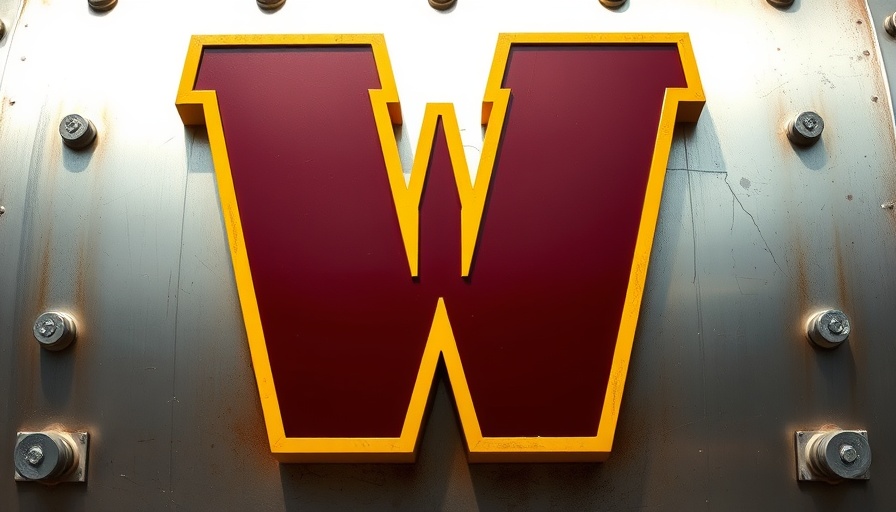
Trump's Controversial Threat Over NFL Team's Name Change
In a surprising move, former President Donald Trump has reignited the contentious debate surrounding the name of the Washington NFL team. Threatening to obstruct a major stadium deal unless the team reverts to the name "Redskins," Trump has positioned himself at the center of a cultural clash that many believed had quieted down since the team dropped the name in 2020. With an extensive legacy of mixing sports and politics, Trump’s latest statement underscores how sports can often become a battleground for identity and tradition.
The Historical Context of the Redskins Name
The name "Redskins" has faced significant backlash over the years, regarded by many as a derogatory reference to Native Americans. After decades of advocacy from Indigenous groups and longstanding criticism about its implications, the franchise officially retired the name in 2020. This shift was met with relief from numerous organizations including the National Congress of American Indians, aiming to promote respect towards Indigenous cultures in sports.
However, Trump’s call for a return to the name highlights a divided perspective on tradition versus progress. While some fans yearn for the nostalgic ties to the team’s past, many Indigenous rights advocates argue that any name referencing a marginalized group perpetuates harmful stereotypes. This clash of views speaks to larger societal discussions on cultural sensitivity and representation in sports.
Fan Perspectives: The Recall of Tradition
Among loyal fans, there exists a nostalgic desire to reclaim the name Redskins as a symbol of tradition and history. Fans argue that the name is part of the team's heritage and ties them to generations of football culture. On social media, the hashtag #RedskinsRebrand has surfaced, revealing a faction of supporters who believe that the name should be restored. This viewpoint often prioritizes personal sentiment and loyalty over the historical and cultural implications of the name.
Indigenous Voices and Changing Norms
Contrary to the sentiments of some fans, leading Indigenous advocacy groups oppose the name return vehemently, calling it a regression in the fight for social justice. Organizations like the Association on American Indian Affairs argue that perpetuating names that marginalize communities contravenes the values of respect and equality. They advocate for a broader understanding of the impact that sports teams' names can have on cultural perceptions and societal norms.
The Business Dynamics Behind the Stadium Deal
Simultaneously, the conflict raises questions about the economic implications of Trump's threats regarding the potential new stadium. The Commanders, having made plans to return to Washington D.C. with a new stadium poised to open by 2030, are at a crossroads. The local government's $500 million commitment to a stadium deal stands to benefit the community significantly, creating jobs and stimulating the economy. However, this may now be jeopardized if Trump's threat materializes, complicating negotiations as both sides grapple with public relations and financial pressures.
What Does This Mean for the Future of the Commanders?
As opinions on the name and its implications continue to spark debate, the Commanders face a pivotal moment in their identity and legacy. Engaging with both sides of the discussion, the team has an opportunity to redefine its narrative moving forward. The challenge lies in balancing fan loyalty with sensitivity towards Indigenous rights and cultural movements.
Whether this battle will lead to an eventual compromise remains to be seen. Yet, the spotlight is firmly on how the franchise navigates these treacherous waters and creates a foundation that respects both its history and the progress demanded by society.
Take a Stand: What Can You Do?
This situation offers an important opportunity for fans and citizens alike to engage in a meaningful dialogue about the implications of sports names. Express your thoughts on social media, advocate for respectful representation, and support initiatives that highlight Indigenous cultures positively. Understanding the power of names and symbols in sports transcends football; it’s about representing our values in our communities.
As we witness this evolving discussion, let’s challenge ourselves to think critically about the traditions we hold dear and their impact on diverse communities across the nation. Let's not just watch the game—let's be part of the conversation.
 Add Row
Add Row  Add
Add 




Write A Comment